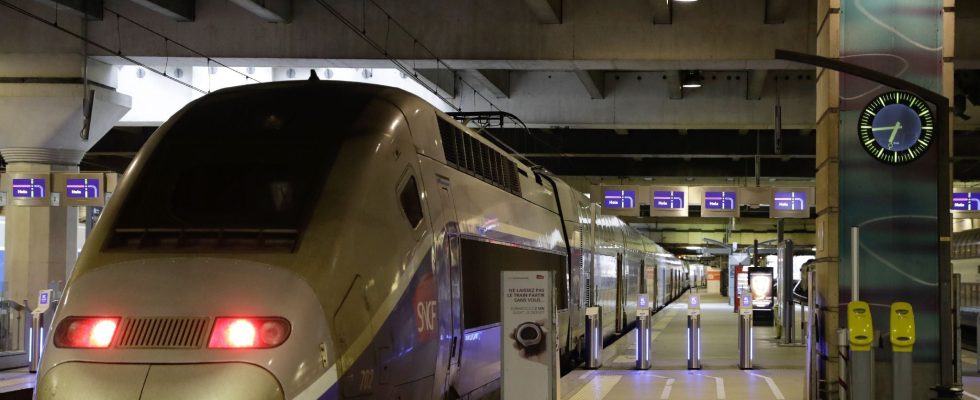SNCF controllers are threatening to strike on February 16, 17 and 18, a school holiday weekend in a large part of the country, to demand salary increases and better consideration of their end of career.
After the Christmas 2022 strike which forced the SNCF to cancel numerous TGVs and left around 200,000 travelers in the lurch, the controllers mobilized via a Facebook group called Collectif national ASCT (CNA) are once again threatening to go on strike, as revealed it The world this Friday, February 2. This collective, formed outside of any union framework, is not authorized to submit notice and must therefore rely on the unions to make its demands.
A notice was therefore filed by Sud-Rail from February 15, 8 p.m. to February 19, 8 a.m., in the middle of the weekend of vacation departures for the academies of Besançon, Dijon, Bordeaux, Clermont-Ferrand, Grenoble, Lyon, Limoges and Poitiers. This weekend is also in the middle of the school holidays of the academies of Ile-de-France as well as Montpellier and Toulouse. The CGT-Cheminots took action on Friday by filing a strike notice which can be extended from February 15 at 7 p.m. The first union of the railway group “calls on railway workers in the train sector, whatever their activity (InOui, Ouigo, TER, Intercités, Transilien) their grade or their function, to stop work on February 16, 17 and 18”.
“A recognition of the arduousness of the profession”
Controllers and unions alike believe that certain measures promised during the resolution of the conflict at the end of 2022 are slow to materialize, such as the mandatory presence of two controllers per TGV. They are also demanding an increase in their work bonus. The CGT wants to increase it to 780 euros per month – compared to 720 euros currently. They finally ask for “recognition of the arduousness of the profession with the renegotiation of the agreement on the gradual cessation of activity”, which makes it possible to manage the end of one’s career, according to Fabien Villedieu of Sud-Rail.
The CFDT-Cheminots also denounced the non-application of the measures resulting from the crisis exit agreement signed at the end of 2022. This union does not officially support the strike but it called on its local branches to submit requests for immediate consultation ( DCI), prior to the strike notice.
In November, the obligatory annual negotiations (NAO), signed by two unions out of four, ratified an average salary increase of 4.6% in 2024 for SNCF railway workers. Critics of the agreement denounce an overall increase of only 1.8%, the rest coming from seniority and individual advancement. Sud-Rail had threatened to strike at Christmas before giving up and meeting in January to “build a movement on wages”.
